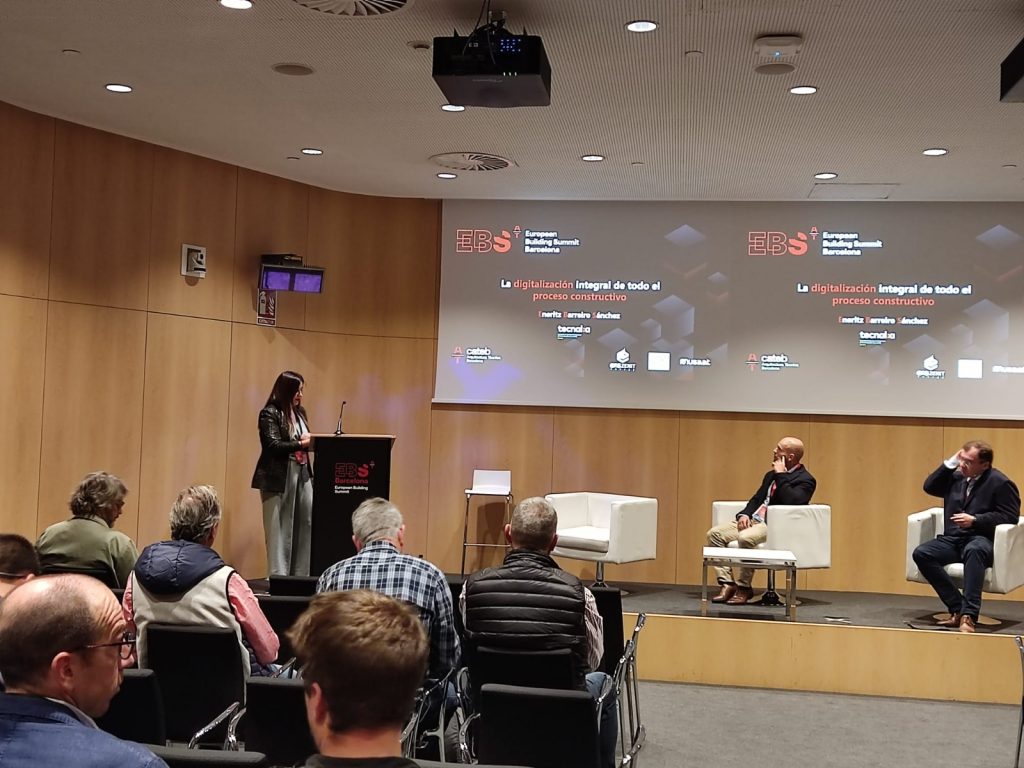The European Building Summit Barcelona (EBS) 2023 has closed two days of congress on the challenges of Construction 4.0 with the conviction that it is necessary to quickly adapt to changes and solve the problems inherent in the sector, such as the lack of workforce, in order to meet the European objectives of sustainability and make its future viable. Challenges that, according to Ignasi Pérez Arnal, CEO at BIM Academy and content director at EBS Barcelona, ”require a collective pact, where politicians, entrepreneurs and institutions work collaboratively thinking about the future” in order to have a sufficient, improved and rehabilitated housing stock, while adapting to the increasingly strict standards of environmental improvement and sustainability. The director of the congress, Rafael Capdevila, expresses himself in similar terms, pointing out that “we have to stop talking and move on to collective action, we have to stop being lone wolves and act together”.
The EBS Barcelona, in its first edition as an evolution of the European Bim Summit, was held in the framework of Construmat on May 24 and 25 with the participation of around thirty of the leading European experts who presented the latest innovations based on the three key challenges: industrialization, digitalization and sustainability. Three concepts on which the future of construction hinges and which must be faced as quickly as possible. The president of the Col·legi de l’Arquitectura Tècnica (Cateb) -organizer of EBS Barcelona-, Celestí Ventura, made this clear in his opening speech: “There is no time to waste, we have the tools to change, we must commit to sustainability, to the circular economy and to a new culture of building maintenance, to move towards the future”.
In a congress in which circular economy, raw and more sustainable materials, digital platforms, decarbonization, etc. were discussed, one of the key points of the debate also revolved around renovation, and especially the energy renovation of buildings. Faced with a housing stock with millions of buildings in poor condition and out of compliance with sustainability regulations, the rate of renovation (around 30,000 homes per year) falls far short of future needs: “There is a lot to do, and we have found a way for renovation to become an driving force for construction”, says Capdevila. He adds that the European Next Generation funds should be the “driver of change”, but at the moment they do not have the speed or the right pace to meet the deadlines set by Europe on energy efficiency.
For his part, Pérez Arnal considers that EBS Barcelona “has opened Pandora’s box” and has put on the table that one of the main obstacles to the evolution of the sector is the lack of manpower: “Without the necessary professionals, we will not be able to advance in technology and innovation”. A workforce that, at the same time, must be much more qualified for more specialized and technological work. Digitization is key for the future, as it allows all the information and the details of each step of the construction process to be available, from design to delivery of the building, as well as the role played by CO2 and the European target of 0 emissions that Europe has set for 2050: “We cannot imagine the repercussion that this will have on the way we work in the sector, because I believe that the final label for a building will not be based on the price, but on the CO2 consumed”, concludes Perez Arnal.






